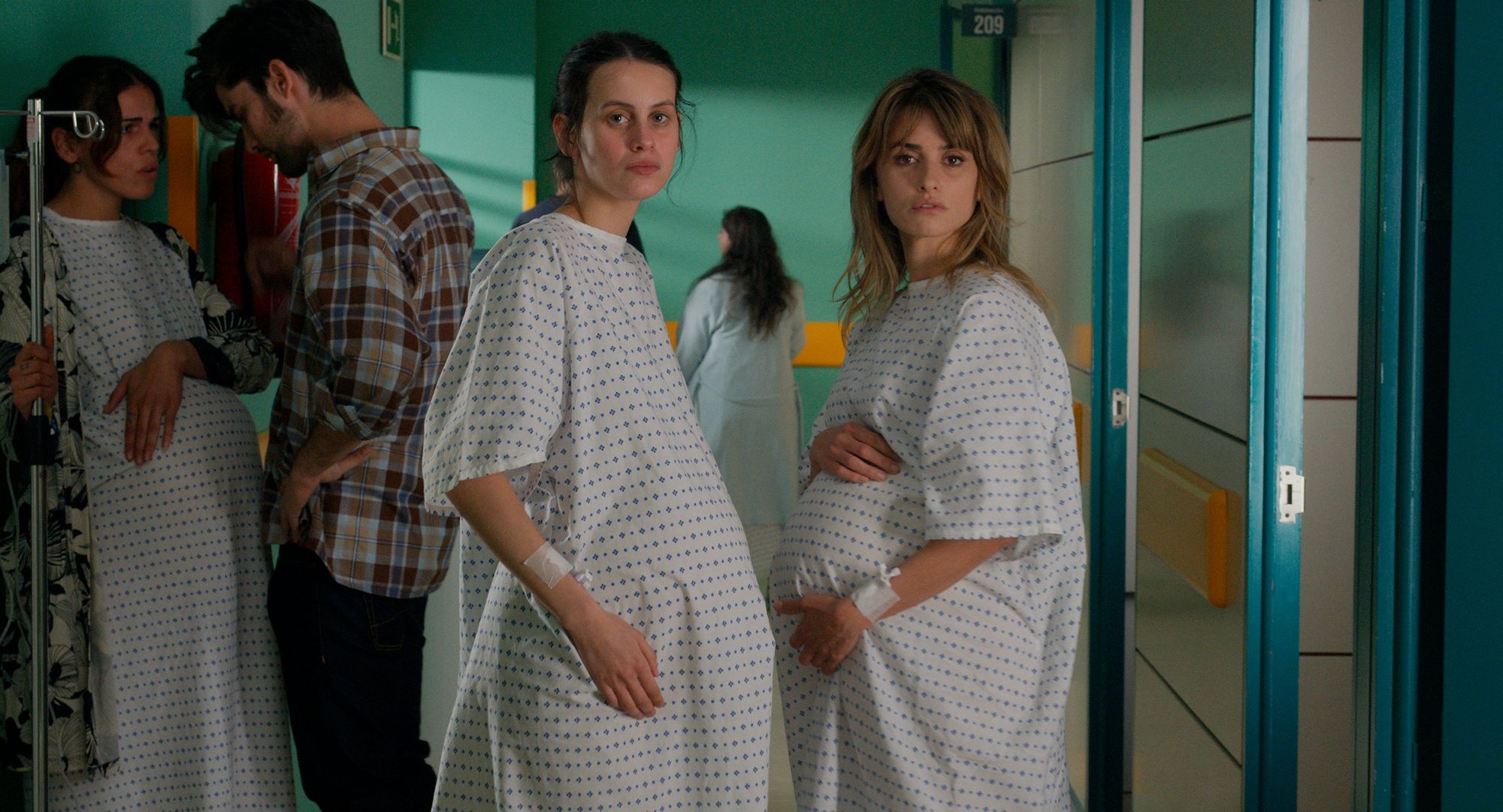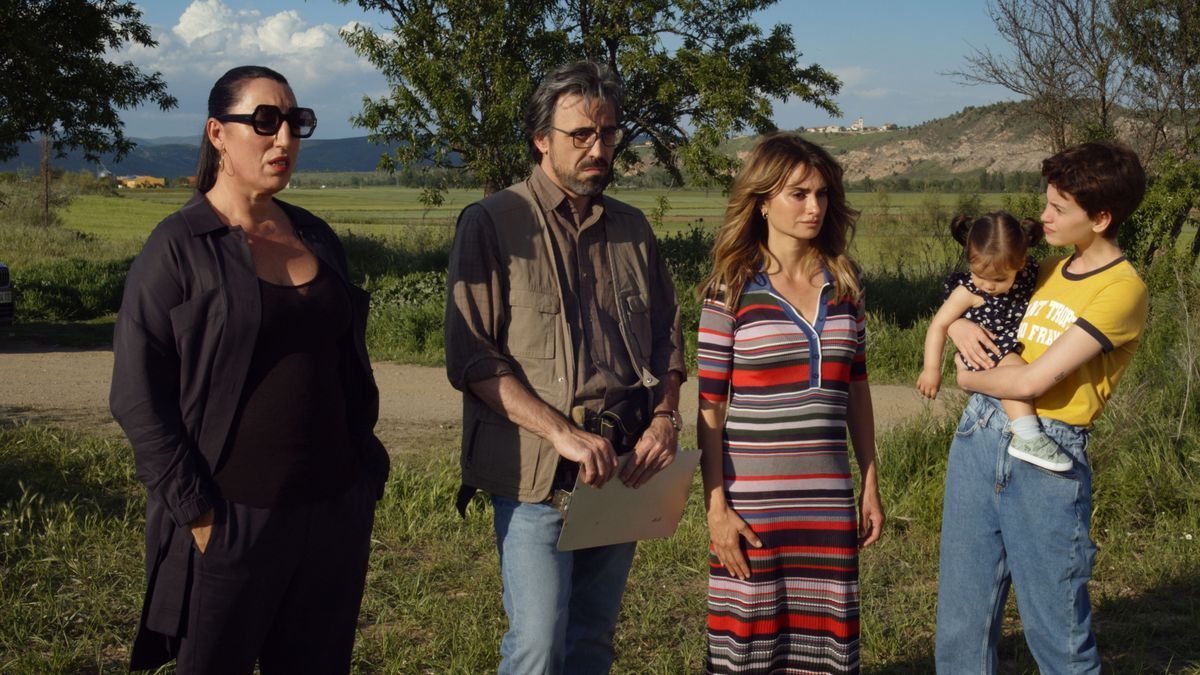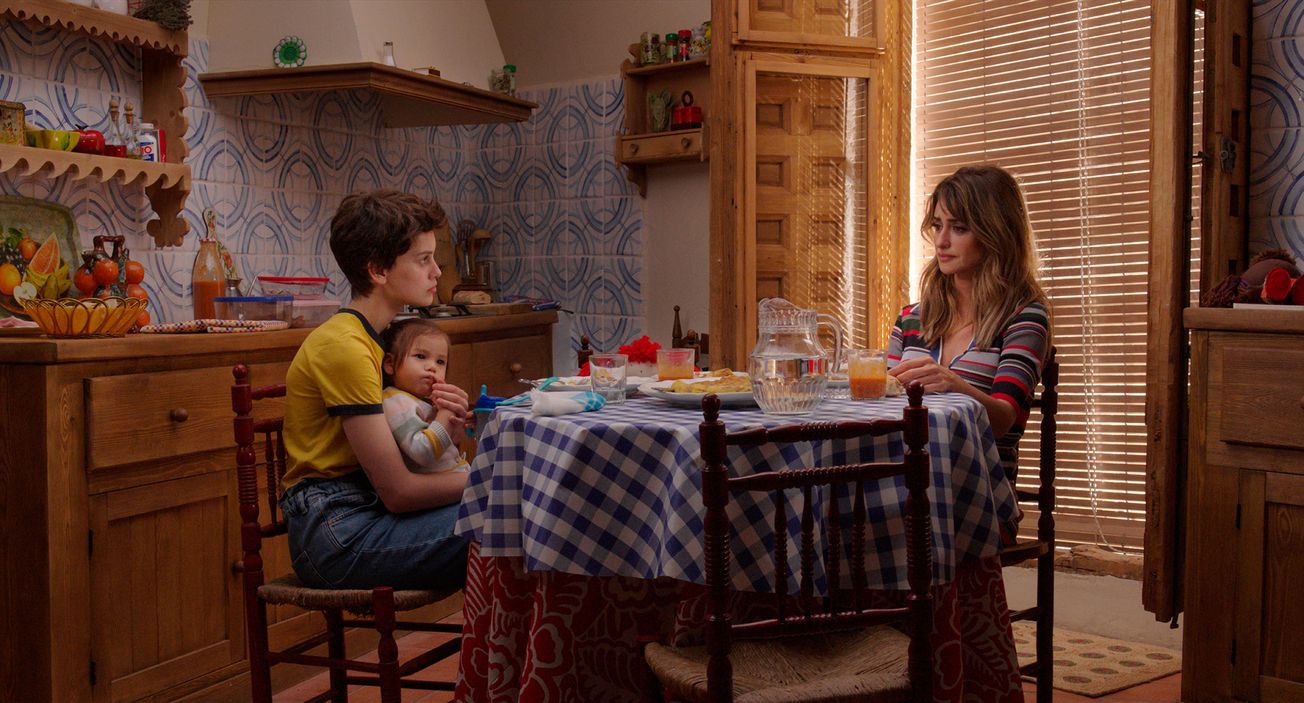By Molly Grogan, Second year, English Literature
Parallel Mothers (2021) begins with the flash of a photograph being taken. It is disarming at first, but cleverly both enables and captures the unlikely encounter between Janis (Penelope Cruz) and archaeologist Arturo (Israel Elejalde). Janis is photographing Arturo for a magazine, and they immediately hit it off, giving Janis the chance to seek Arturo’s advice about the currently unmarked, unexcavated site of her grandfather’s murder, a victim, amongst countless others, of the fascist Francoists during the Spanish Civil War. Arturo agrees to present the case to his department.
Fast forward 9 months, and a passionate night or two, middle-aged Janis is in labour, in the same room as teenage mother-to-be, Ana. Excited and reluctant respectively, they, too, hit it off, sharing the raw, unprecedented and sometimes alienating experience of childbirth. And so, their lives continue to intersect at the ups and downs of those precious first months, which soon become years, until a new discovery (which even I found genuinely gasp-worthy) threatens to shatter the sisterhood.

Penelope Cruz (Janis) delivers a wonderfully nuanced performance, balanced perfectly by Ana’s (Milena Smit) subtly empowering character arc. Their relationship, as authentic and beautiful as it is flawed, teeters on the edge, and indeed eventually arrives at, the erotic. But its portrayal is treated so tenderly, casually even, by Pedro Almodovar, that it’s almost possible to see the film as through the female gaze.
Almodovar's Parallel Mothers is a refreshing hybrid; filled with recurrent comings and goings of past and present, old and new, acquaintance and stranger, the film has a special pulsating and captivating rhythm. Parallel Mothers is a stylish film that undoubtedly packs a lot in, but the audience never feels lost, and if ever we do, it seems only to mirror the jolting twists and turns of Janis and Ana’s own turmoils.

Alberto Iglesias’s excitingly staccato soundtrack is unsettling and memorable, accompanying Almodovar’s characteristically vibrant colour scheme and the frequent and dramatic fades to black (that feel all the more like tumbling down the rabbit hole that is motherhood).
All senses are invigorated, and it certainly felt like a breath of fresh air for a British audience, not always used to such unflinching and playful creativity. But it is the unexpected symbiosis of comedy and tragedy which make its message feel all the more urgent, generating a brilliant suspense that dares us to look away.

If we do, it implies, we miss its very meaning, which is to face, head-on, both the past and the future, collective and personal responsibility, establishing for future children, mothers, generations, a more accepting world.
Featured Image: IMDB
Will you be watching Almodovar's take on motherhood?








